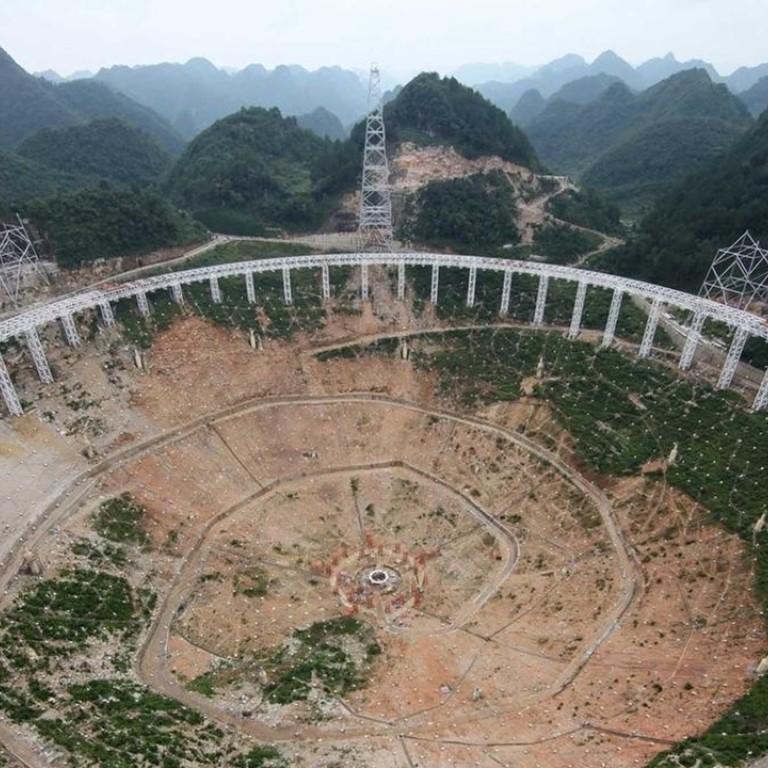
China's space telescope to displace 10,000 humans in search for aliens
Officials in southern province of Guizhou moving residents out of 5km zone around listening device
Mainland authorities will move nearly 10,000 people to make way for the world’s largest radio telescope which promises to help humanity search for alien life, state media reported yesterday.
The Five-hundred-metre Aperture Spherical Radio Telescope (FAST), nestled between hills in Guizhou province is due to start operation this year.
Provincial officials have vowed to relocate 9,110 residents living within 5km of the listening device by September, Xinhua said.
The relocations will “create a sound electromagnetic wave environment”, it cited a top regional official named Li Yuecheng as saying.
Residents would receive 12,000 yuan (HK$14,330) in subsidies for their troubles, with some getting extra support for housing, it said.
READ MORE: China building one of the world’s fastest astronomical computers to power giant, alien-seeking telescope
FAST, built at a cost of 1.2 billion yuan, will dwarf the Arecibo Observatory in Puerto Rico as the world’s largest radio telescope, which is 300 metres in diameter.
Xinhua earlier cited Wu Xiangping, director-general of the Chinese Astronomical Society, as saying the telescope’s high level of sensitivity “will help us to search for intelligent life outside of the galaxy”.
In the past, the mainland has relocated hundreds of thousands of people to make way for large infrastructure projects such as dams and canals. Many complain of poor compensation.
The area surrounding the telescope is remote and relatively poor. Xinhua earlier said it was chosen because there are no major towns nearby.
As well as upping investment in astronomy, Beijing is accelerating its multibillion-dollar space exploration programme, with plans for a permanent orbiting station by 2020 and eventually a manned mission to the moon.

.png?itok=arIb17P0)